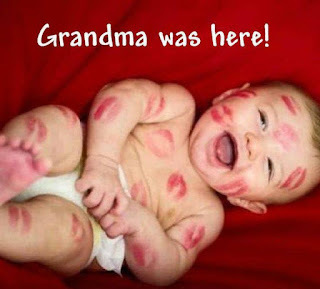Memorial Day and Is that active or passive voice?
I wish you safe and enjoyableMemorial Day festivities, but please take time to remember that the day was setaside to commemorate the men and women who died while serving in the UnitedStates Armed Forces.

§§
Active vs inactive voice.(The following are excerpts from an older blog by a prolificauthor and fellow Sisters-in-Crime member.)
IN DEFENSE OF THE MALIGNED “WAS” By Lois Winston
It happened again the other day. I received the results of acontest I had entered and discovered that one of the judges had circled every“was” in the entry and wrote in large capital letters -- PASSIVE VOICE.
Editors like action verbs. “Was,” along with its brothersand sisters (is, am, are, been, were) is passive and a surefire way to arejection letter.
Wrong!
Passive voice is when an action is acted upon the subject,rather than the subject acting.
The car was driven byAnna is a passive sentence. Annadrove the car is an active sentence. However, Anna was happy to drive the car is not a passive sentence. Anna isexpressing emotion. She is acting, rather than being acted upon. Of course,there are more interesting ways to write the sentence to show Anna’s emotions,but that’s a separate discussion. One of the easiest ways to tell whether your sentence isactive or passive is to analyze the position of the subject, verb, and directobject.
 In active voice, the subject (the one performing the action)will come before the verb (the action), and the verb will come before thedirect object (that which is being acted upon.)
In active voice, the subject (the one performing the action)will come before the verb (the action), and the verb will come before thedirect object (that which is being acted upon.)
There are instances, though, when passive voice is necessaryto the unfolding of a story or better suited to the realism of the dialogue.When we speak, we don’t first think whether our sentences are active or passivebefore uttering them. We just speak them.
Manipulate a sentence to avoid passive voice inconversation, and you often transform snappy dialogue into stilted dialogue.
For example: Billy ran into the house and cried, “Mom! Come quick. Snoopy was hit by a car!”This passage accurately illustrates the way a child might respond to a carhitting his dog. Snoopy was hit by a caris a passive sentence because Snoopy is being acted upon by the car, but thechild mentions Snoopy first because the dog’s welfare is uppermost in his mind.Also, by placing the last sentence in passive voice, the author is actuallyratcheting up the tension. We don’t know until the very end exactly what hitSnoopy. A stray baseball? A nasty neighbor? A falling tree limb? Although “A car hit Snoopy” is active voice,using it actually lessens the impact of the sentence.
Still squeamish about the use of “was”? After you havefinished your manuscript, do a search of the word. Check each sentence to seeif you can rewrite it to avoid using “was.” If you can, and it doesn’t detractfrom the pace, dialogue, or meaning of the passage, do so. If not, leave it.Some “was” were meant to be.
Except . . . the subjunctive:
The what, you ask? Subjunctive case or mood is one of themost misunderstood rules in the English language -- and virtually unknown tomost contest judges who will circle a “were” and write in a “was” because thesubject is singular.
 Do you know how fast you were going?
Do you know how fast you were going?
The subjunctive applies to cases of “wishfulness” or “whatif” situations.
In these cases, “was” becomes “were,” as in, I wish I weretaller. “Were” is also used when a sentence or clause uses “if,” “as if,” or“as though,” but only in instances where the statement is contrary to fact.
Examples include: If Iwere taller, I could see the stage better, Her twelve-year-old son acts as ifhe were in kindergarten, or The maidbehaved as though she were queen. Because I cannot grow taller, thetwelve-year-old is not in kindergarten, and the maid is not a queen, all thestatements are contrary to fact, and “was” becomes “were” even though thesubjects are all singular.
Keep in mind, though, that the key statement here is“contrary to fact.”
“If” statements that are not contrary to fact retain thesingular form of the verb. “If I was atStarbucks that day, I don’t remember” is a correct sentence because thestatement is not contrary to fact whether or not I can recall the event. ///(cj Sez: I keep a list of the quirks and twists that I runacross, like the stink, stank, stunk. Do you keep a list, or do you run toGoogle?)§§
WRITERS: Whether it’s your first time writing a novel or just need areminder, here’s some info on word counts for different genres; How Many Words in aNovel? (Updated for 2024) (reedsy.com) §§
Okay, that’s it fortoday. You-all guys keep on keeping on, and I’ll try to do the same. Raisingprayers for a happy and safe you and yours.
cj
Now some words from my sponsors: Beach? Mountains?StayCay? It’s time to plan for those holiday and summer vacation downtimemoments when you can lose yourself in a book. THE DAWGSTAR and DEATH ON THEYAMPA are available on Amazon or through your favorite eTailer and bookstore.
Got a library card? You can read the ebooks free fromHoopla.
Nota bene: AngelaTrigg, the RITA Award-winning author and owner of The Haunted Book Shop has afew signed copies of my paperback books in stock. TO ORDER, contact: https://www.thehauntedbookshopmobile.com/contact-us
➜ Follow me on ➜ Amazon: AmazonCentral Author Page➜ Facebook: https://www.facebook.com/CjPettersonAuthor➜ BookBub: https://www.bookbub.com/authors/cj-petterson➜ Goodreads: https://bit.ly/3fcN3h6
Published on May 26, 2024 02:00
No comments have been added yet.
Book launch scheduled
DEADLY STAR is scheduled to launch on Feb. 18. You can't tell from this type font, but I'm excited!
DEADLY STAR is about a vaguely dysfunctional couple who, when sharing an imminent danger, find common DEADLY STAR is scheduled to launch on Feb. 18. You can't tell from this type font, but I'm excited!
DEADLY STAR is about a vaguely dysfunctional couple who, when sharing an imminent danger, find common ground in their love for each other. I hope the reader will find that as enjoyable to read as I did to write. Mirabel Campbell, the protagonist, might be called a nerd, but she's also sassy and determined. Robert (Sully) O'Sullivan is a ruggedly handsome CIA agent. On the flip side, he’s a bit of a bad boy and a liar.
As soon as I know when advance ordering is available for DEADLY STAR, I'll post it, here and on www.lyricalpens.com but please also check on Amazon.com and B&N.com.
...more
DEADLY STAR is about a vaguely dysfunctional couple who, when sharing an imminent danger, find common DEADLY STAR is scheduled to launch on Feb. 18. You can't tell from this type font, but I'm excited!
DEADLY STAR is about a vaguely dysfunctional couple who, when sharing an imminent danger, find common ground in their love for each other. I hope the reader will find that as enjoyable to read as I did to write. Mirabel Campbell, the protagonist, might be called a nerd, but she's also sassy and determined. Robert (Sully) O'Sullivan is a ruggedly handsome CIA agent. On the flip side, he’s a bit of a bad boy and a liar.
As soon as I know when advance ordering is available for DEADLY STAR, I'll post it, here and on www.lyricalpens.com but please also check on Amazon.com and B&N.com.
...more
- C.J. Petterson's profile
- 11 followers



